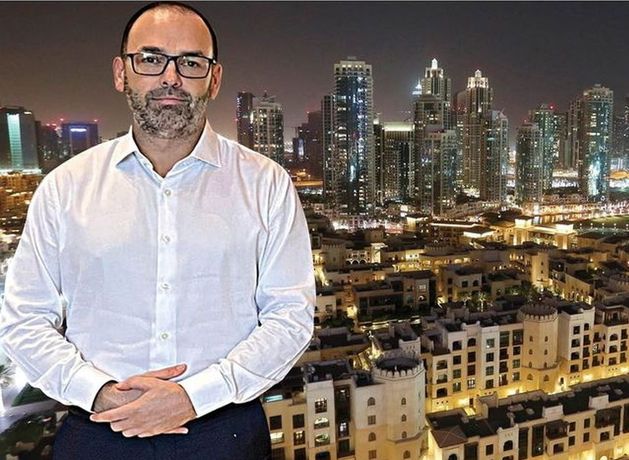Dubai’s Hidden Connection: How a Drug Kingpin Thrived in Luxury Real Estate
Raffaele Imperiale, dubbed the "King of Narcos" and leader of a vast European drug trafficking ring, secretly owned a stake in a luxury real estate firm operating in Dubai even while on the run from Italian authorities. This shocking revelation, unearthed by the Organized Crime and Corruption Reporting Project (OCCRP), exposes a complex web of international connections between criminal underworld figures and the glittering world of high-end property development in the Emirati city-state.
Imperiale, a key figure in Europe’s super-cartel, eluded justice for years while residing in a lavish lifestyle provided by revenue from his illicit drug empire. Despite being a wanted man in Italy, he enjoyed the protection of Dubai, a known haven for fugitives and a global hub for luxury real estate. His involvement in the real estate sector highlights the potential for criminal elements to exploit legitimate industries for financial gain and money laundering.
From Fugitive to Shareholder: Imperiale’s Dubai Empire
Imperiale’s foothold in Dubai’s real estate scene began with his acquisition of a stake in AA Real Estate Development, a company specializing in building opulent villas. He served as chairman of the board of directors and held his stake through a local company alongside several other Italian and Emirati citizens. This venture provided him with a seemingly legitimate platform to conceal his ill-gotten wealth and maintain a facade of respectability.
However, Imperiale’s reign in the real estate world wasn’t destined to last. In August 2014, Spanish authorities issued a warrant for his arrest and sought his extradition. Sensing the tightening noose, Imperiale stepped down as chairman of AA Real Estate Development shortly after.
Remarkably, this strategic exit was followed by a surprising development. In November 2015, Sheikh Marwan bin Mohammed Al Maktoum, son of Dubai’s ruler Sheikh Mohammed bin Rashid Al Maktoum, acquired a majority stake in AA Real Estate Development. Imperiale himself, acting as a representative for a former manager at Dubai’s Land Department, signed the contract alongside the young Sheikh.
The details of this transaction raise serious questions about the due diligence process and the level of transparency within Dubai’s real estate sector. While the amount paid for the stake remains undisclosed, it’s unclear whether Sheikh Al Maktoum was aware of Imperiale’s status as a wanted drug trafficker at the time. OCCRP reached out to Sheikh Al Maktoum for comment but received no response.
The Fall of an Empire: From Dubai To Justice
Imperiale’s opulent lifestyle in Dubai finally came to an end in 2022, when he was arrested by local authorities and extradited to Italy following a protracted legal battle. In July 2023, a court in Naples sentenced him to 15 years and eight months in prison for his leadership role in the Camorra drug mafia.
Imperiale’s downfall marks the dismantling of a vast international criminal network. He was at the helm of Europe’s super-cartel, a consortium of powerful drug trafficking organizations that included notorious figures such as Daniel Kinahan, Dutch criminal Ridouan Taghi, and Bosnian drug lord Edin Gačanin.
This unholy alliance was revealed in 2017 when Imperiale, along with Taghi and Gačanin, was photographed attending Kinahan’s lavish wedding at Dubai’s Burj Al Arab hotel. The event was attended by numerous major criminal figures from across the globe, highlighting the interconnectedness of the international criminal underworld.
Following his extradition, Imperiale made a strategic decision to turn state’s witness against the Camorra. This move, motivated by self-preservation and a desire to mitigate his sentence, has sent shockwaves through the Neapolitan mafia and its allies.
His willingness to cooperate with Italian authorities has opened new avenues for investigations and prosecutions targeting both the super-cartel and the broader criminal network operating within Dubai and beyond.
Imperiale’s story highlights the vulnerability of real estate markets to infiltration by organized crime. The lucrative nature of luxury real estate, coupled with lax regulations in some jurisdictions, creates a tempting environment for criminals seeking to launder illicit funds and establish legitimate fronts.
This case underscores the urgent need for enhanced transparency and stricter due diligence requirements within the global real estate industry. Governments, regulatory bodies, and financial institutions must collaborate to identify and mitigate the risks posed by criminal infiltration, ultimately safeguarding the integrity of the real estate market and protecting innocent investors.

